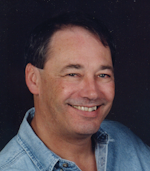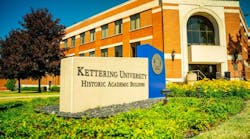Jeremy Pollard, CET, has been writing about technology and software issues for many years. Pollard has been involved in control system programming and training for more than 25 years.
What do we need to do? Like really, what do we need to do with our industry—discrete and process—to engage these engineers who are born but don’t know they're really engineers yet?
I challenged the International Society of Automation to "do it differently" (DiD) many years ago during a conversation with Dick Morley. At that time, he'd been asked to help guide the "society" to make it more relevant and to have a bigger appeal. I sent him a picture of its executives and told him this has to change.
There were more white shirts and ties than there are at a funeral. And no one that I could see was under 50 years old.
We're paying individuals in the engineering fields more now than before, which tells me that the resource pool is shrinking, but that isn’t new.
ISA has held YAPFest, which was strictly for the young automation professional (YAP), during its Automation Week. Nice job, Tracy! It was well attended and provided an insight into their future with the conference and tradeshow. But with a national automation week dead in the water, how can we continue the YAPFest movement, and how can ISA help?
So, since I am a member of ISA and over 50, I get in the mail a brochure that suggests I can have a voice in choosing the leadership for ISA for 2014. Interesting, to say the least.
There are 10 white shirts, or reasonable facsimiles, out of the 16 candidates, but only nine ties. Sheesh! Now, this isn’t a bashing exercise, believe me, but hopefully a head shake that we can DiD somehow.
I discovered this past month that my area here has a LEGO robotics lab at the central board of education for the county of Simcoe. "Gifted" as well as "normal" kids from grades four to eight at a local public school get to participate in the standard curriculum involving the techs.
So, I tracked down Mike Ready, teacher at Mountain View Elementary School in Simcoe County, who organized the local "robotics revolution" competition, where more than 20 challenges are presented to be solved using LEGO robotics. There were more than 150 students who participated this year. Where have I been?
Ready was very generous with his time and guidance, for which I'm grateful. I also asked some pointed questions, but I also remembered that he's an individual that heads up an "automation" program for local grade school kids, where budding engineers can be found. So here we go.
He refers to specific projects as purpose-driven, which defines the end goal of the exercise. He submits that the out-of-the-box thinking that generally "shows up" can make spotting young engineering minds somewhat easy. And he refers to an additional project called Wondercoaster, where scale-model, gravity-powered coasters are built. His observations suggest that unless it’s fun, the students' enthusiasm begins to wane.
This local robotics revolution now boasts 50 teams over two days. The local grade school's gifted program students, which have more exposure to science, technology, engineering and math (STEM) programs, have a full day of the competition dedicated to them.
Ready submits that the solutions to the challenges tend to be more creative coming from the gifted program students than the non-gifted, but not always. He tends to believe that the ability to be unshackled from the expected is what leads to solutions that can be unexpected.
There have also been For Inspiration and Recognition of Science and Technology (FIRST) events run at a local college that Ready has been involved with. Again, where have I been? These teams have competed in the United States on behalf of Canada.
So, here's where the rubber meets the road. I asked if he was a member of ISA. His response: "Never heard of it."
I then asked how an international organization could help a grassroots program that he has been dealing with. In a nutshell—resources.
Budget restrictions, as well as time resources, tend to throttle the efforts of these programs. And Ready is all about the experience for the students. His time is volunteered, and as much as we can discuss teachers and their time, ones like Ready are the ones that can help because they care about their students and their futures—no disrespect meant.
The reason why I scoped out Ready is to provide some feedback to the ISA process. Vote you must, but vote for those who can be progressive and who have some determination to make a difference. Who are they? I don’t know, but find out.
I would then implore the ISA to launch a grassroots program to get any educational professional to register for a full membership free of charge. Get resource materials into their hands to help them help to develop those engineers who don’t know they're engineers yet. It's time for real innovation.






